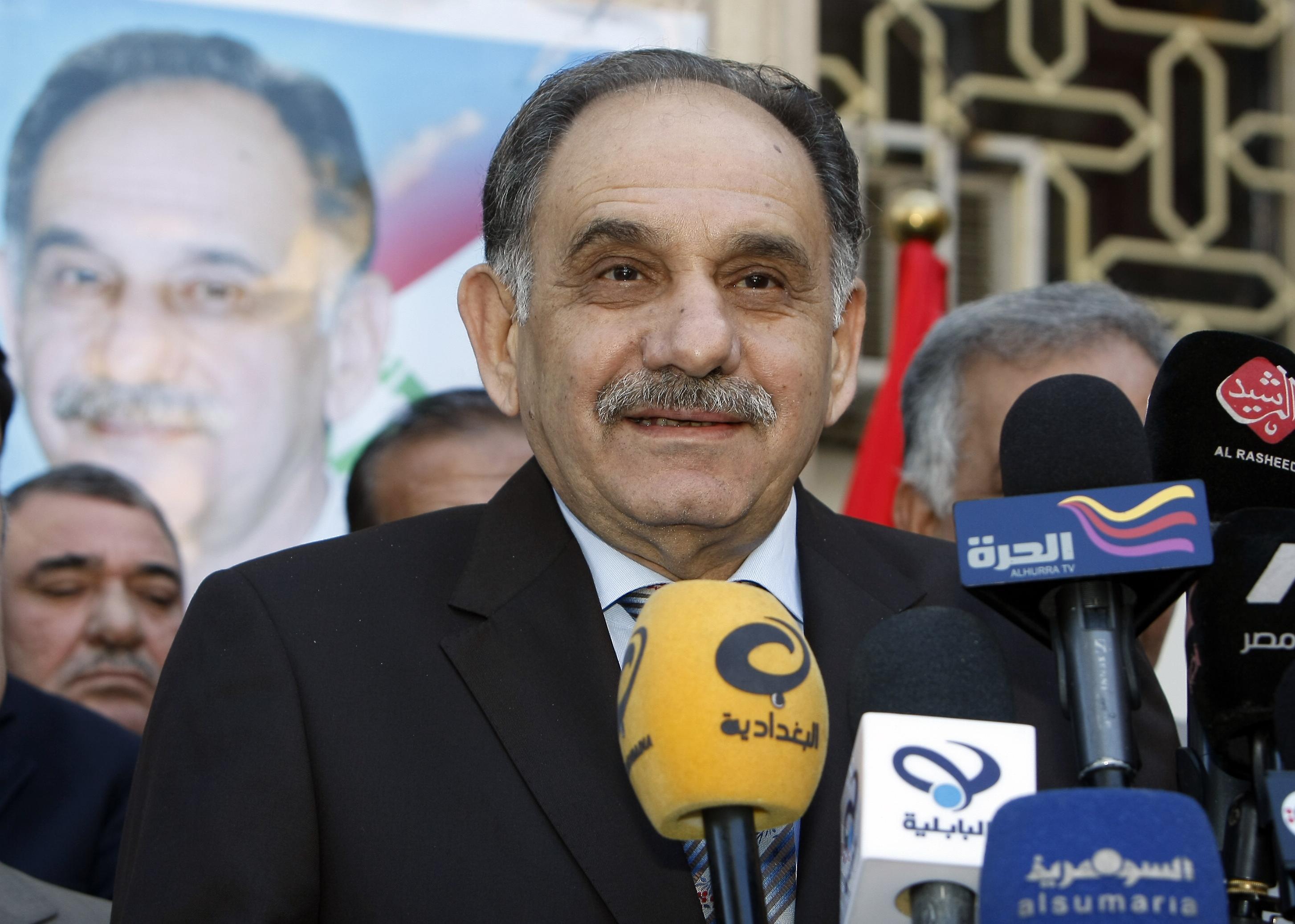The Shiite-dominated government of Iraqi Prime Minister Nouri al-Maliki has contributed to the current outbreak of violence in Iraq’s Anbar Province by marginalizing Sunnis and former members Saddam Hussein’s Baath Party, according to the country’s deputy prime minister.
The U.S. government has reportedly now agreed to supply the Iraqi government with more weapons in order to defeat the “al-Qaida linked” Islamic State of Iraq and the Levant (ISIS) militants now in control of the city of Fallujah in Anbar province, after conversations between Maliki and Vice President Biden earlier this week. But Deputy Prime Minister Saleh al-Mutlaq, a prominent secular Sunni leader whose party opposes Maliki’s, told Slate that today that “stability will not happen through supplying arms only” because Sunnis in the region “feel they are being marginalized, and they are uprising now.”
“There is a wrong feeling that what’s happening in Anbar is merely al-Qaida and da’ash (a nickname for ISIS). This is a mistake,” he said. “People in Anbar are uprising now because when the army was sent to defeat al-Qaida in Anbar [last year], they changed their direction and went after demonstrators. The attacked the demonstrators, removed their tents, and arrested one of the parliamentary people in Ramadi. This gave people the impression that the aim is not al-Qaida, that the aim is the demonstrators.”
Mutlaq acknowledged that “there is a presence of al-Qaida among the uprising,” but claimed that “the major presence is the demonstrators, the ex-Baathists, the former army, who were left for years without any job. They want to join the new army, but nobody accepted them.” Though Mutlaq is one of Iraq’s most prominent Sunni leaders, he has found himself the target of ire from the demonstrators in the past. In 2012 his bodyguards opened fire on a group of Sunni protesters in Ramadi who attacked his convoy and accused him of trying to undermine the protests.
Mutlaq was a member of Saddam Hussein’s Baath Party, before being expelled in 1977 over a disagreement over the treatment of Shiite prisoners. Though he claims that his relationship with Hussein had soured years before that, he draws much of his support from former members of the government and military who feel they have been marginalized since the U.S. supported de-Baathification efforts following the war. “Ten years later, we’re still suffering from” de-Baathification, he said. Mutlaq himself had been banned for a time from taking part in elections because of his past associations.
Mutlaq says he warned Maliki not to ignore what had been relatively peaceful demonstrations in Anbar last year. “They are demonstrating and expressing themselves in a peaceful and democratic way,” he said. “If you ignore them, they will feel that democracy is not the solution, so they will go to be extremists.”
He says the government’s new military offensive in the region is “mainly an election agenda” aimed at shoring up the Shiite base ahead of April’s parliamentary vote. “They know very well that this will destroy the country, but the main aim for them is to win the election and they don’t care what will happen for the country,” he said. He worried that if peace is not restored to the area by April the government will impose a curfew in the region, leading to low Sunni turnout.
In addition to military aid, Mutlaq, who met with Sen. John McCain and House Foreign Affairs Commitee Chairman Ed Royce this week, along with other members of Congress, says he would like to see the U.S. put more pressure on Maliki to engage in dialogue with Iraq’s Sunnis.
“The U.S. have their friends there,” he said. “They have their allies who they brought in power since the occupation of Iraq. They can put some pressure on them to sit with their colleagues and reconcile to get some sort of consensus. Now, there is a complete isolation of Sunnis.”
He compared the situation of the Sunnis with that of Iraq’s Kurds, who “have their rights, maybe more than their rights, and it was the Americans who helped them.” Mutlaq also said that the Kurdish regional government had recently “gone too far” by drafting a plan to export oil to Turkey without Baghdad’s approval, a move which he said is tantamount to “going for independence.”
Mutlaq blames Iranian influence for the fact that Maliki’s Shiite-dominated alliance is still in power, despite his own coalition earning more votes in the 2010 parliamentary elections, and he worried that improving U.S.-Iranian relations would give Iran more power in the region.
“Iran will be in a stronger position that it’s in now,” he said. “Its position now is affecting the whole area. Just imagine what will happen to the Iranian regime if the American-Iranian relationship is changed toward what we hear now. That will make Iran into the police of the Gulf Area.”
Mutlaq is scathing in his assessment of America’s legacy in the country. “They were supposed to remove the Saddam regime and change the situation from a dictatorship to a democratic government,” he said, referring to the United States. “But instead of doing that, they destroyed the country as a whole.”
